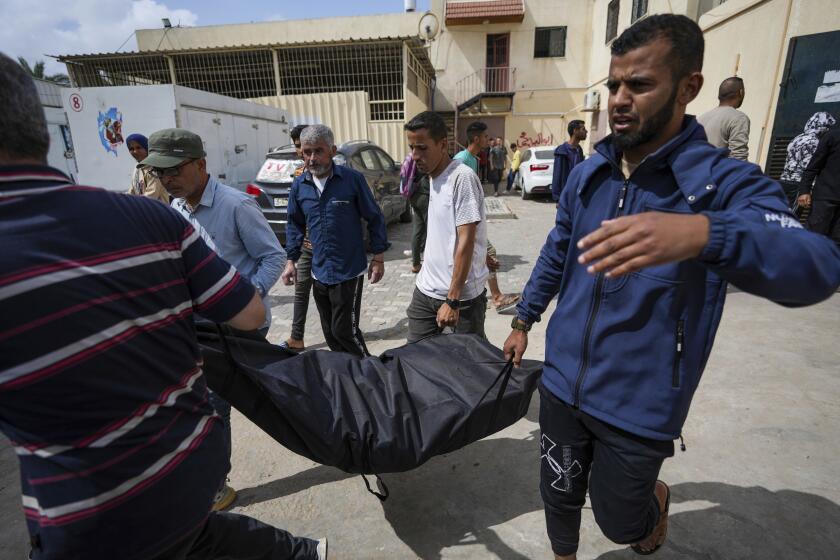S. Africa Ousts U.S. Attache in Retaliation for Similar Expulsion
The South African government Saturday ordered the senior U.S. defense attache to leave the country in retaliation for the expulsion from Washington of this nation’s top military representative in the wake of South African raids Monday on three nearby black nations.
A South African Foreign Ministry spokesman said in Cape Town, “As a result of the decision of the U.S. government to expel Brig. Alexander Potgieter, the South Africa government has informed the U.S. Embassy of its intention to expel the senior U.S. defense attache, Col. Robert Hastie.”
In Washington on Saturday, the State Department had no comment on the South African action. A spokesman, Pete Martinez, pointed out that when United States announced Potgieter’s expulsion Friday, it simultaneously announced that Hastie was being withdrawn by the United States from South Africa.
Issue of Sovereignty
In ousting Potgieter, who was given 10 days to leave Washington, the State Department said, “We trust this action will make clear to the South African government that the United States cannot tolerate disregard of the sovereignty of South Africa’s neighbors.”
The white government in Pretoria expressed initial surprise at the U.S. action, but officials shrugged it off Saturday as “a sign of displeasure, a diplomatic gesture, nothing more,” and “not too consequential.”
“Had the Reagan Administration voted in the Security Council at the United Nations for mandatory economic sanctions, then we would have real cause for concern,” a senior official commented, asking not to be quoted by name. “We understand that the United States is annoyed with us, that it wants everyone to know, but does not want to damage the underlying relationship. Frankly, we were more concerned about the United Nations vote.”
The United States and Britain late Friday vetoed a Security Council resolution that called for selective international sanctions to punish South Africa for its attacks on bases of the African National Congress in Botswana, Zambia and Zimbabwe. Three people were killed in the raids and 15 wounded.
The United States, which imposed limited sanctions against South Africa last year, had said that it would support a resolution condemning the raids, but U.S. delegate Patricia M. Byrne told the Security Council, “We do not believe that the destruction of the South African economy serves anyone’s interest, least of all those who suffer under apartheid.”
President Pieter W. Botha has vigorously defended the raids, saying that they were necessary to keep the African National Congress, the main guerrilla group fighting apartheid, from launching terrorist attacks inside South Africa from bases in nearby countries.
In another development Saturday, more than 250 policemen and soldiers were used to protect Louis le Grange, the minister of law and order, from white extremists who tried to disrupt a speech he delivered to a meeting in Ellisras of the ruling National Party. Ellisras is a small farming town 175 north of Johannesburg.
Five members of the Afrikaner Resistance Movement were arrested after scuffling with police, but there was no repetition of the violence that prevented Foreign Minister Roelof F. (Pik) Botha from speaking Thursday in Pietersburg, another conservative white stronghold in northern Transvaal province.
Foes of Any Reform
The white-supremacist group, some of whose members wore swastika-type emblems, according to news agency reports, opposes the government’s step-by-step reforms, most of all its pledge to share political power with blacks, and wants to maintain strict racial separation and continued white minority rule.
Elsewhere Saturday, 13 more blacks died in the country’s continuing civil strife.
More to Read
Start your day right
Sign up for Essential California for news, features and recommendations from the L.A. Times and beyond in your inbox six days a week.
You may occasionally receive promotional content from the Los Angeles Times.






